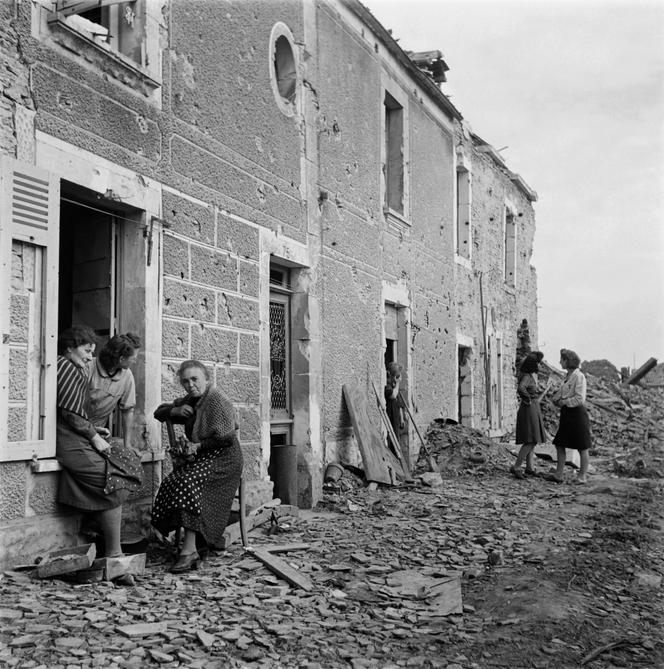


Eighty years ago, at the end of June 1944, the Battle of Normandy was at its height. Can a topical event such as the commemoration of these violent battles for the liberation of France revive buried memories? Yes, as confirmed by the testimonies of people who lived through these dramatic events as civilians.
Between February and June, 65 witnesses, now aged between 86 and 104, were invited to recount their personal memories of this period in semi-structured interviews lasting around an hour and a half. Francis Eustache, a neuropsychologist at the Institut National de la Santé et de la Recherche Médicale (INSERM, Université de Caen-Normandie), led this project with Peggy Quinette, a neuropsychologist, and Lucie Da Costa Silva, a psychologist, and with the help of historians, towns in Normandy – including Caen –, local newspapers and associations.
The aim is to understand the impact of these often traumatic experiences – bombings, exoduses, war scenes, the wounded and the dead – on the identity of those who witnessed them through the eyes of a child, teenager or young adult.
We'll have to wait a few months before having a full assessment of these narrative memoirs. But already, a few conclusions can be drawn. "These people's narratives are often calm and distanced," Eustache explained. With hindsight, they fully realize what they went through, and even more so what their parents or grandparents went through, and how they had to cope." For all that, the memory of trauma – the loss of a loved one, or threats or humiliation they suffered – remains vivid in some people – even 80 years later.
Not surprisingly, these testimonies underline "the power of sensory and emotional cues in recalling feelings, emotions or snippets of memory," continued Eustache. The commemoration of this battle, but also the televised images of today's bombed cities, in Ukraine and Gaza, have reactivated their sensory impressions of those terrible days – including smells. "I see Ukraine, I see Gaza, I see my Normandy town bombed," said one witness. "And it brings back smells of dust, gunpowder and death, from the victims buried under the rubble." Who could make this stuff up, wonders Eustache?
Imprecise "memories" have also emerged of German songs, the sound of boots in the streets, the echo of truck or plane engines. "As some of these people grow older, these noises frighten them again." The stories are then no longer soothing, and to protect themselves, these people no longer watch television in the evening or no longer go to see fireworks.
You have 50.36% of this article left to read. The rest is for subscribers only.
